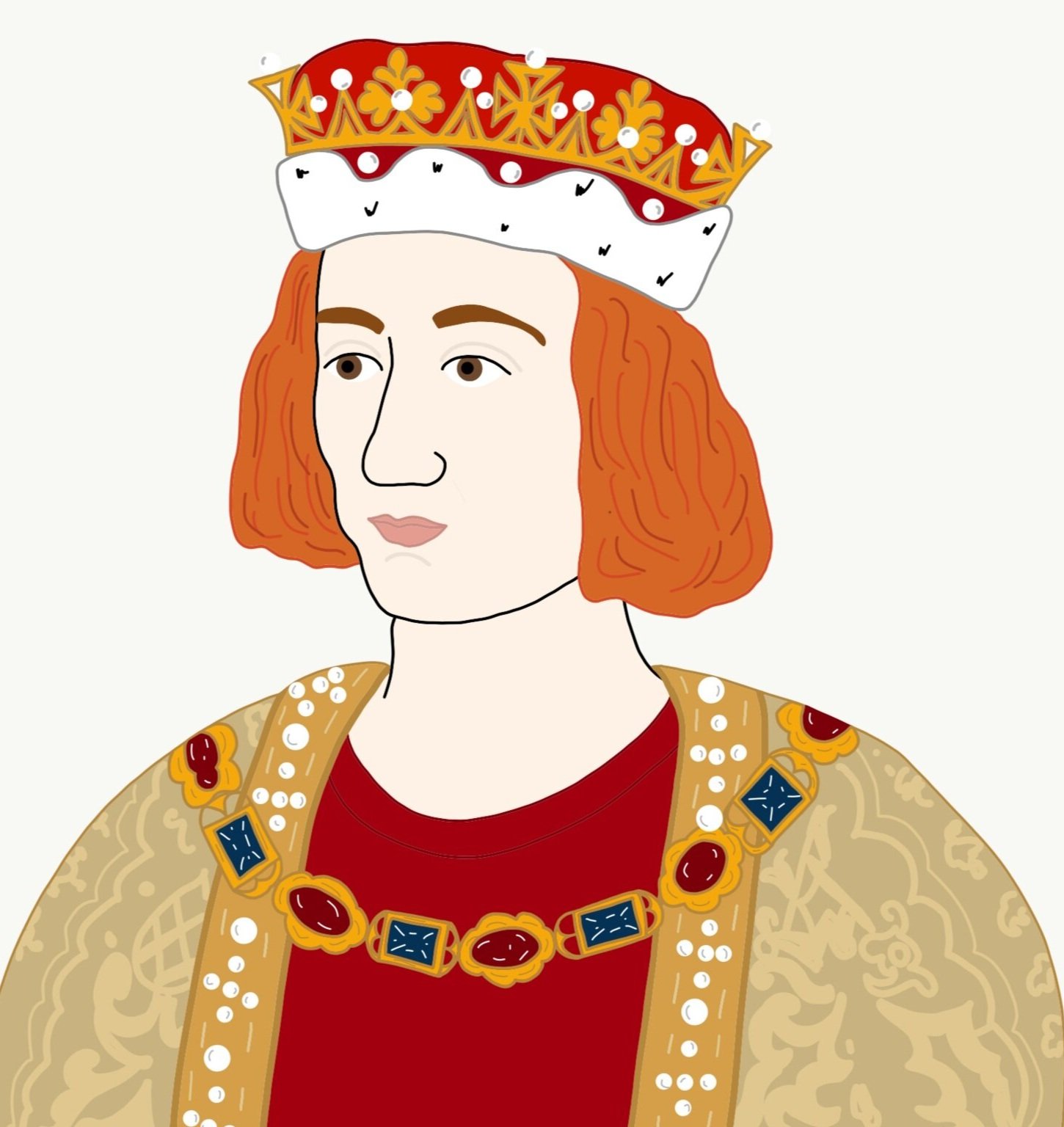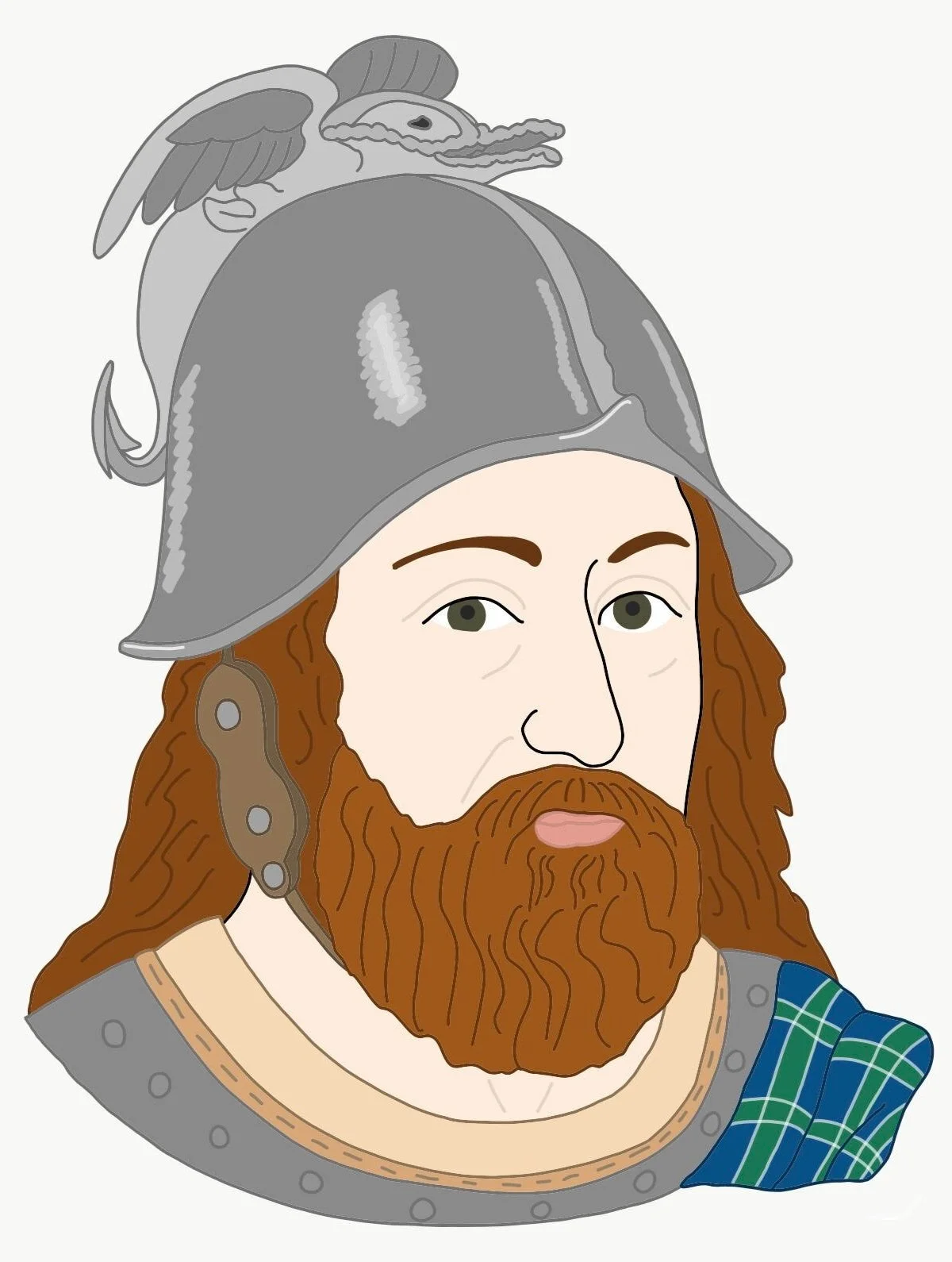August 1st - 7th
“Britain entered World War I, the atom bomb was dropped on Hiroshima, Anne Frank was arrested for being Jewish, and William Wallace was betrayed and captured - not exactly a nice week in history...”
On 1st August…
10BCE - The Roman emperor Claudius was born. Claudius is the emperor who succeeded in conquering Britain, although it wasn’t easy; it did take him over 30 years of fighting the local tribes.
The end of the Stuart Dynasty on the English throne
1714 - Queen Anne of England died and her second cousin, George of Hanover, became King George I. Her reign signalled the end of the Stuart Dynasty and the beginning of the House of Hanover.
1800 - The Act of Union 1800 received royal approval. The Act united Great Britain with the Kingdom of Ireland forming the United Kingdom of Great Britain and Ireland. It was voted for by Parliaments in both Britain and Ireland in March 1800 and came into effect on January 1st, 1801.
1820 - The Regent’s Canal in London opened. In its first year 120,000 tonnes of cargo were carried along the canal.
1834 - The Slavery Abolition Act (1833) came into effect abolishing slavery throughout the British Empire. The slave trade had been abolished in 1807 but it took another twenty-six years before slavery was made illegal.
The first Boy Scouts camp
1907 - The Boy Scouts began with a camp for twenty boys on Brownsea Island in Dorset, England. Robert Baden-Powell hoped that in bringing together boys of differing backgrounds, he would be able to bridge the gaps in society and give everyone the chance to learn new skills.
1914 - Germany declared war on Russia. Germany mobilised its troops ready for attack at the beginning of what would become known as The Great War or World War I. France was left with no option but to mobilise its military, ready for action under the terms of its agreement with Russia.
On 2nd August…
338BCE - In Ancient Greece at the Battle of Chaeronea, the Macedonian army led by Philip II defeated the joint forces of the city states of Athens and Thebes to unite the central and southern states of Ancient Greece under Macedonian rule.
King dies in hunting accident
1100 - King William II (William Rufus, the son of William the Conqueror) was accidentally killed by an arrow whilst hunting in the New Forest in the south of England.
William was not a particularly popular king and ruled with an iron fist, this meant he was very strict and ruthless. When the arrow hit him in the chest it is said that he didn’t yell out in pain but instead just broke off the shaft of the arrow (the stick part). This action made him bleed quicker, leading to his death.
His younger brother Henry left him in the forest and raced to seize the throne. Do you think it was an accident that he was hit by an arrow?
1914 - Great Britain mobilised its troops in readiness for battle at the beginning of World War I. Parliament agreed to support Belgium’s neutrality. Belgium did not want to be part of the argument and had refused to permit German troops to enter and pass-through Belgian territory in order to reach France.
On 3rd August…
1460 - King James II of Scotland died after being fatally injured by an exploding canon at Kelso in the Scottish borders. He was trying to regain control of Roxburgh Castle which had remained in English hands since the Wars of Independence. James had been king of Scotland since the age of 6 years old when his father, James I, was brutally murdered. James II’s 9-year-old son became King James III upon his death.
1492 - Christopher Columbus set sail on his first voyage with three ships in the expedition: the Nina, the Pinta and the Santa Maria. He set sail heading west hoping to find another route to China and India but instead, a few months later he found America and the Caribbean islands. Believing the islands to be part of India, they were named the West Indies.
1887 - Rupert Brooke the famous World War poet was born in Rugby, England. His most famous poem was ‘The Soldier’ which began, ‘If I should die, think only this of me: That there’s some corner of a foreign field that is forever England.’
Jesse Owens begins his winning streak at the Olympics
1936 - At the Olympic Games in Berlin, the American sprinter Jesse Owens won the first of his four gold medals in the 100m race in front of Adolf Hitler who was the Fuhrer (ruler) of Germany. During the Olympics Jesse also managed to break or equal nine Olympic records and set three world records. These wins dealt a huge blow to Hitler’s Nazi party ideology that the Aryan race were superior in all things.
On 4th August…
King Henry III freed by his son at Battle of Evesham
1265 - Battle of Evesham saw the English Prince Edward defeat Simon de Montfort the younger (6th Earl of Leicester), free his father King Henry III and restore royal authority.
It all started fifty years before with the Magna Carta and the promises of the Monarchy, under King John, to adhere to some rules. King Henry III had continually broken those rules and pushed the boundaries in his favour, whilst Simon de Montfort continually tried to restrict the king’s power.
Both Henry III and Simon de Montfort both vied for power and rule over England. Henry and his son, Edward, had been captured and held prisoner by de Montfort whilst de Montfort governed England in the captured king’s name.
Prince Edward was able to escape, build an army, crush Simon de Montfort at the Battle of Evesham, and free the king. Simon was killed and brutally dismembered during the battle as punishment.
1900 - Elizabeth Bowes-Lyon was born. She was married to King George VI and was mother to Queen Elizabeth II. In the year 2000 she celebrated her 100th birthday.
1914 - Germany demanded free passage across Belgium in its attempt to reach France in the wake of World War I. to allow its Army to cross through Belgium. Germany decided to invade Belgium despite being told not to and declared war on France.
1914 - At 11pm Britain declared war on Germany after Germany had refused to remove its troops from neutral Belgium at the beginning of World War I.
Anne Frank arrested for being Jewish
1944 - Anne Frank and her family were arrested in Amsterdam by German Security Police after an anonymous tip off. They had been in hiding in an attic with other families for over two years. All who had been in hiding were all taken to concentration camps across German held territories where Anne died shortly before the end of World War II.
On 5th August…
642 - The Battle of Maserfield took place between the Anglo-Saxon kings Oswald of Northumbria, and Penda of Mercia. King Penda defeated King Oswald and dismembered his body. The body parts are thought to have been offered up to pagan gods to appease them. This was just one of many battles between the warring kingdoms of Anglo-Saxon Britain.
910 - The joint Anglo-Saxon forces of the kingdoms of Wessex and Mercia defeated the last major Viking army to invade England at the Battle of Tettenhall. Lady Aethelflaed of Mercia and her brother King Edward of Wessex sandwiched the Danish forces; two Viking kings were killed, and many thousands of men died. Aethelflaed’s and Edward’s combined strength eventually united England under one king.
Henry I crowned king
1100 - King Henry I was crowned King of England in Westminster Abbey, just three days after his older brother William II was killed in a hunting accident. Henry I was the youngest son of William the Conqueror.
William Wallace captured
1305 - William Wallace, leader of the Scottish resistance to English rule was betrayed for a generous ransom and captured near Glasgow. He was taken to London for trial and execution.
1962 - Marilyn Monroe, the Hollywood film star and icon died from a drug overdose. She was 36 years old.
On 6th August…
1497 - John Cabot returned to Bristol from Newfoundland, North America. He was the first European to do so since the Vikings. He reported that the land he had found was excellent with a temperate climate and a sea full of fish.
Atom bomb dropped on Hiroshima
1945 - In an attempt to bring Japan to its knees and surrender in World War II, an atomic bomb was dropped on the Japanese city of Hiroshima. It was the first time an atomic bomb was used in an attack. The city was reduced to rubble and tens of thousands of people died immediately with tens of thousands more dying over the following days and weeks from radiation and other illnesses.
On 7th August…
Henry Tudor lands in Wales
1485 - Henry Tudor’s army landed at Mill Bay near Milford Haven, South Wales. Having been exiled for fourteen years in Brittany, France with his uncle Jasper Tudor, Henry decided it was time to return to England and stake a claim at the crown. He would go on to become King Henry VII.
Chimney Sweepers Regulation Act 1840
1840 - The employment of young boys as chimney sweeps was prohibited by an Act of Parliament. The new law stated that anyone under the age of 21 years should not ascend or descend a chimney or flue (climb up or down inside a chimney) for the purpose of cleaning, sweeping or coring, or for the purposes of extinguishing a fire within the chimney. Coring was a way in which to check the width of the chimney and to check for any obstructions. It also stated that nobody under the age of 16 years was to be employed as an apprentice chimney sweep.
This law was very difficult to keep a check on and children continued to be employed in the trade. It wasn’t until 1875 when chimney sweeps had to be licenced by the police that the use of children to sweep chimneys finally stopped.










